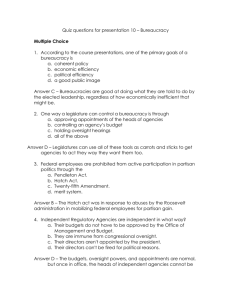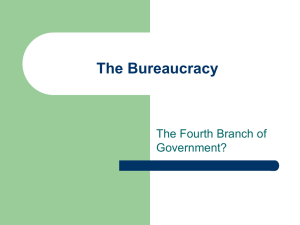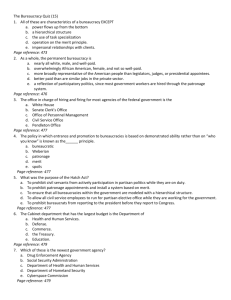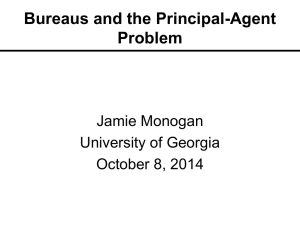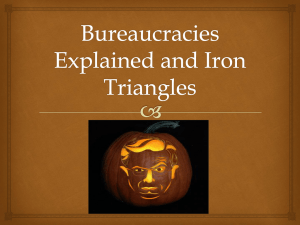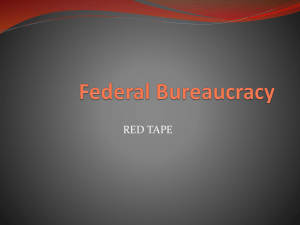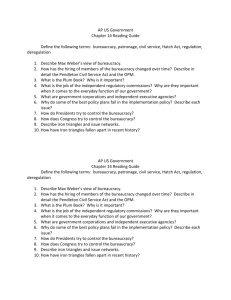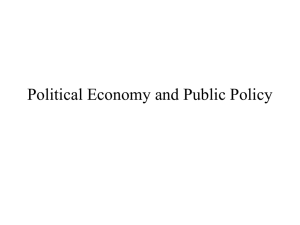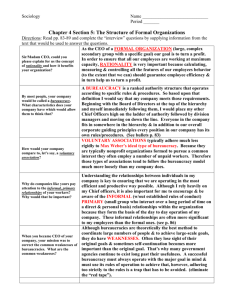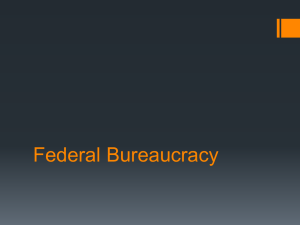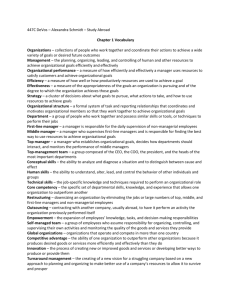Bureaucracy
advertisement
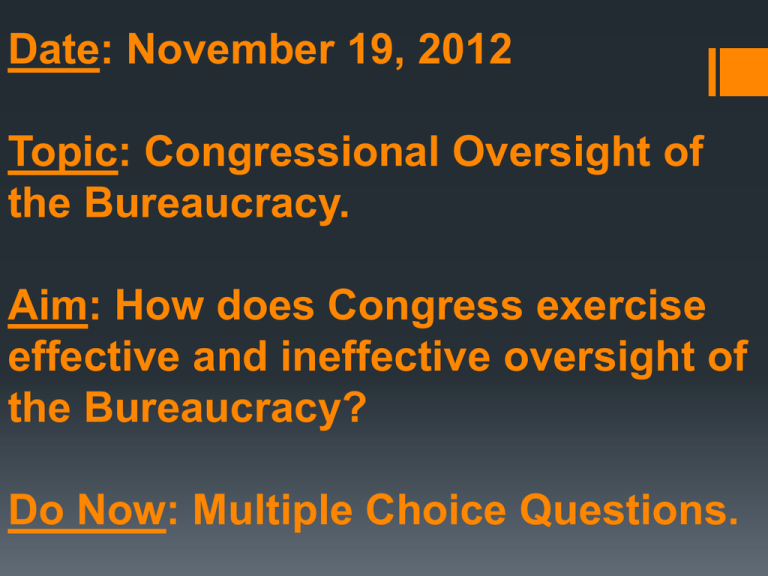
Date: November 19, 2012 Topic: Congressional Oversight of the Bureaucracy. Aim: How does Congress exercise effective and ineffective oversight of the Bureaucracy? Do Now: Multiple Choice Questions. How did the reading from Heclo impact your thoughts on the bureaucracy? Why? Methods of Effective Congressional Oversight of Bureaucracy. Budget control. Reauthorization/Jurisdiction of agencies. Setting guidelines for agencies. Committee hearings. Sunset Law – expiration date/termination date of a government program. Casework as a source of information – information that congressmen receive from constituents. Program evaluation. Reasons for Oversight Failure Oversight is labor intensive – need expertise. Interest groups may encourage Congress to overlook things. Iron Triangles may foster strong/loyal relationships. Independence of the Bureaucracy Merit System – hiring or promotion based on experience, testing, or qualifications (opposite spoils system). Structure of the Bureaucracy that contributes to independence: a.) Large – size contributes to bureaucracy acting on its own. b.) Specialized – people without knowledge on issue makes it difficult to penetrate. c.) Some positions come with tenure. d.) Regulatory agencies (SEC) act independently through making sure rules are being followed. Complexity of Public Policy Problems that Contribute to Independence: Specialization. Delegating authority. Discretionary authority CLICK. Constitutional Provisions Used to Check Bureaucracy Congress a.) Appropriations – can reward or punish through them. b.) Legislation – can be passed affecting bureaucracy. c.) Rejection of Presidential appointments to bureaucracy. d.) Impeachment of executive officials. Courts Court rulings can limit bureaucracy – judicial review. Interest Groups Lobbying. Protests. Media Use. General Speech.

